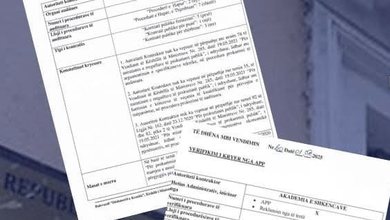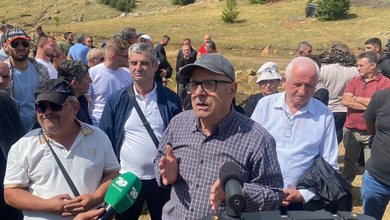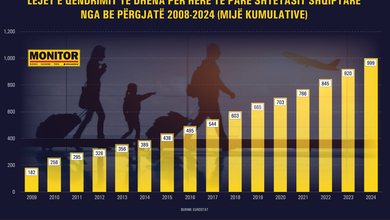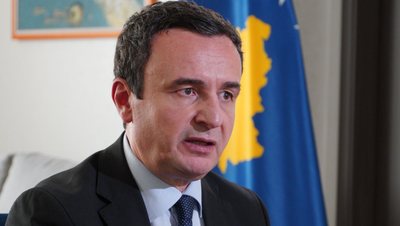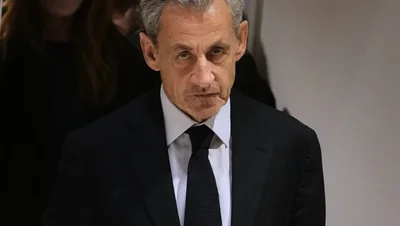 In a new legal initiative, the government acknowledges the failure of the incineration scheme, where tens of millions of euros of investment were made in the last decade, and returns to recycling as the first link in the waste management hierarchy, in a management scheme that is expected to weigh on citizens' pockets with increased costs and fees.
In a new legal initiative, the government acknowledges the failure of the incineration scheme, where tens of millions of euros of investment were made in the last decade, and returns to recycling as the first link in the waste management hierarchy, in a management scheme that is expected to weigh on citizens' pockets with increased costs and fees.
Promised by Rama as a new reform in this sector, the government has submitted to Parliament the new draft law on "Integrated Waste Management", which foresees the powers of an agency created two years ago by decision of the Council of Ministers, the National Waste Economy Agency (AKEM), which will function as a joint-stock company and will be the ultimate administrator of waste management throughout the country.
"The creation of AKEM came at a time when waste management is in a very difficult moment: the concession contracts for incinerators in Tirana, Elbasan and Fier have failed and these plants are under seizure by the authorities," states the Impact Assessment Report, a document drafted by the Ministry of Environment that accompanies the draft law.
This agency will be financed from the state budget, from fees paid by municipalities for waste disposal, and from the sale of materials for recycling.
In the spirit of the law and accompanying documents, the impact assessment report and the report drafted by the Ministry of Environment adhere to the "polluter pays" principle, which, as a result of the implementation of this law, is expected to lead to increased costs and fees for citizens.
In line with this principle, the initiative provides that “the costs of waste management, including the necessary infrastructure and its operation, shall be borne by the original producer of the waste or by its current or former holders”.
Specifically, an increase of up to 1% in average household income is predicted.
"Given that current tariffs for waste management services in Albania are significantly below 1% of household income, a significant increase should be expected if full cost coverage is to be achieved," the ministry's document states, taking as a comparative practice that of EU countries.
Meanwhile, the calculation of the operational costs that local government will face - from collection, cleaning and transportation to waste transfer stations - will be decided by the Council of Ministers, according to the initiative.
For environmental and local government experts, the initiative, in addition to increasing financial costs for waste management, also creates overlap with local government competencies and, contrary to what is promised, does not fully adapt EU environmental directives.
“Ky është një kthim në pikën zero, tek i njëjti zinxhir i menaxhimit të mbetjeve që u prish me pretendimin e një emergjence mjedisore dhe nxori incenerimin si hallkë të parë në vitet e fundit,” tha Olsi Nika, drejtues i Eco Albania.
Nika e sheh me skepticizëm rezultatin që do të sjellë zbatimi i këtij ligji në procesin e riciklimit, ndërsa rritjen e kostove dhe tarifave e lidh me funksionimin e AKEM-it.
“Do të ketë klientë bashkitë dhe detyrimisht do të sjellë rritje të tarifave,” thotë ai, duke shtuar se “nëse do të funksionojë, do të jetë pozitive, si organ i menaxhimit qendror të mbetjeve që shtrihet në territor”.
Që nisma e re mund të çojë në rritjen e tarifave për qytetarët e konstaton edhe Agron Haxhimali, drejtor i Institutit për Bashkitë Shqiptare, i cili thotë se rritja e tarifave është shumë e mundshme, por varet nga mbështetja financiare që qeveria do t’u japë bashkive dhe nga metodologjia që do të përcaktojë Këshilli i Ministrave për llogaritjen e kostove.
“Duke qenë se parimi ‘ndotësi paguan’ e ngarkon krijuesin e mbetjeve (pra qytetarin apo biznesin) me mbulimin e kostove të menaxhimit, bashkitë, për të përballuar shpenzimet për infrastrukturë dhe operim, do të detyrohen të rishikojnë tarifat,” i tha Haxhimali BIRN-it, ndërsa shtoi: “Megjithatë, neni 27, pika 5, lë hapësirë që qeveria të mbulojë një pjesë të investimeve, gjë që mund të zbusë presionin mbi tarifat nëse aplikohet realisht.”
Haxhimali sugjeron që aftësia e bashkive duhet të përqendrohet te zgjerimi i bazës së tarifimit, pasi sa më e gjerë të jetë kjo bazë, aq më e lehtë bëhet ruajtja e stabilitetit të nivelit të tarifave dhe shmangia e rritjeve të papërballueshme për qytetarët.
Edhe Polikron Horeshka, ekspert i menaxhimit të mbetjeve, thekson se “me ngritjen e infrastrukturës së re dhe ndryshimin e operatorit, procesi që nga grumbullimi, transportimi, ndarja në burim, riciklimi dhe asgjësimi do të ketë kosto shtesë për qytetarin”.
Por Horeshka këmbëngul se problemet më të mëdha të kësaj nisme janë kontradiktat ligjore dhe një kthim pas në zbatimin e direktivave të BE-së, pasi sipas tij ligji aktual në fuqi i ka transpozuar plotësisht këto direktiva, ndërsa nisma e re sjell zvogëlim të kërkesave të zbatimit dhe të implementimit.
Ai e quan “gabim të rëndë juridik” faktin që nuk është marrë parasysh se ky ligj i ri do të “rrëzojë” gjithë strukturën ligjore ekzistuese – ligje dhe VKM, dhe po ashtu e sheh ngritjen e AKEM-it dy vite para hartimit të projektligjit si pa bazë ligjore.
Një nga shqetësimet që ka ngjallur reforma e re në menaxhimin e mbetjeve është cënimi i autonomisë vendore në kompetencat e bashkive për këtë sektor.
Instituti për Bashkitë, i drejtuar nga Haxhimali, e kontestoi reformën e prezantuar nga kryeministri Edi Rama në fund të gushtit, si një tentativë për të centralizuar këtë proces duke përjashtuar bashkitë.
Referring to the legal initiative, he told BIRN that “municipalities are in the shadows in terms of strategic planning, decision-making with technology or tariff policies”, adding that “municipalities are reduced to a technical, organizational, administrative and implementation role, and lose their political, strategic and regulatory role”.
Even according to Olsi Nika, under the new provisions, municipalities are seen only as clients of AKEM. “It is a risk of centralization, as it takes away some of the competencies from local governments and turns them into clients,” he said.
Meanwhile, Polikron Horeshka sees two aspects of the impact on the role of municipalities in the new initiative, comparing it to the current law: the removal of mandatory deadlines for waste separation at source, the placement of bins according to their type, and the removal of the role of the district mayor in the implementation of regional management plans.
"The removal of deadlines for waste separation at source and the reduction of the powers and responsibilities of the mayors of 61 municipalities brings about a lack of coordination in the punishment of environmental damage caused by waste to citizens," he concluded./ Reporter.al





